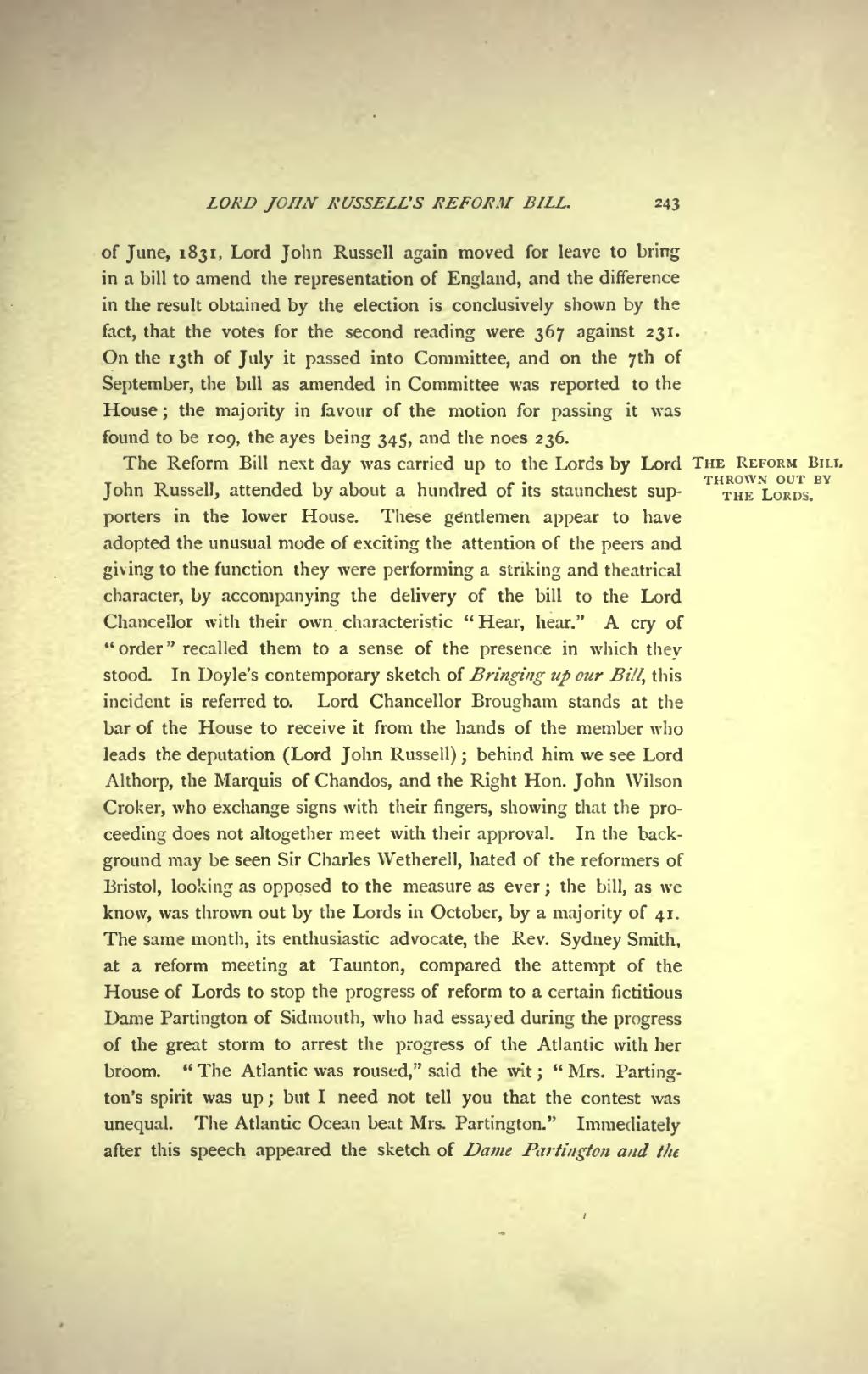of June, 1831, Lord John Russell again moved for leave to bring in a bill to amend the representation of England, and the difference in the result obtained by the election is conclusively shown by the fact, that the votes for the second reading were 367 against 231. On the 13th of July it passed into Committee, and on the 7th of September, the bill as amended in Committee was reported to the House; the majority in favour of the motion for passing it was found to be 109, the ayes being 345, and the noes 236.
The Reform Bill thrown out by the Lords.The Reform Bill next day was carried up to the Lords by Lord John Russell, attended by about a hundred of its staunchest supporters in the lower House. These gentlemen appear to have adopted the unusual mode of exciting the attention of the peers and giving to the function they were performing a striking and theatrical character, by accompanying the delivery of the bill to the Lord Chancellor with their own characteristic "Hear, hear." A cry of "order" recalled them to a sense of the presence in which they stood. In Doyle's contemporary sketch of Bringing up our Bill, this incident is referred to. Lord Chancellor Brougham stands at the bar of the House to receive it from the hands of the member who leads the deputation (Lord John Russell); behind him we see Lord Althorp, the Marquis of Chandos, and the Right Hon. John Wilson Croker, who exchange signs with their fingers, showing that the proceeding does not altogether meet with their approval. In the background may be seen Sir Charles Wetherell, hated of the reformers of Bristol, looking as opposed to the measure as ever; the bill, as we know, was thrown out by the Lords in October, by a majority of 41. The same month, its enthusiastic advocate, the Rev. Sydney Smith, at a reform meeting at Taunton, compared the attempt of the House of Lords to stop the progress of reform to a certain fictitious Dame Partington of Sidmouth, who had essayed during the progress of the great storm to arrest the progress of the Atlantic with her broom. "The Atlantic was roused," said the wit; "Mrs. Partington's spirit was up; but I need not tell you that the contest was unequal. The Atlantic Ocean beat Mrs. Partington." Immediately after this speech appeared the sketch of Dame Partington and the
